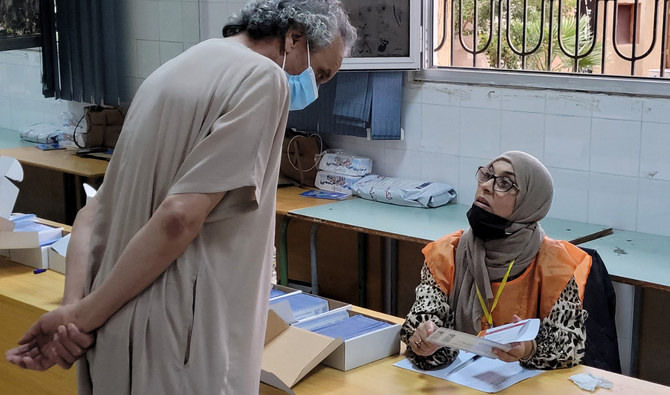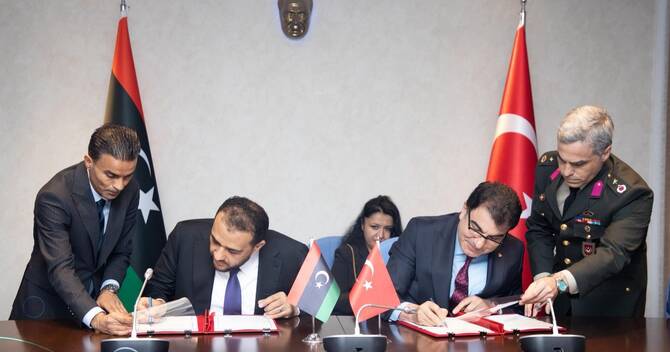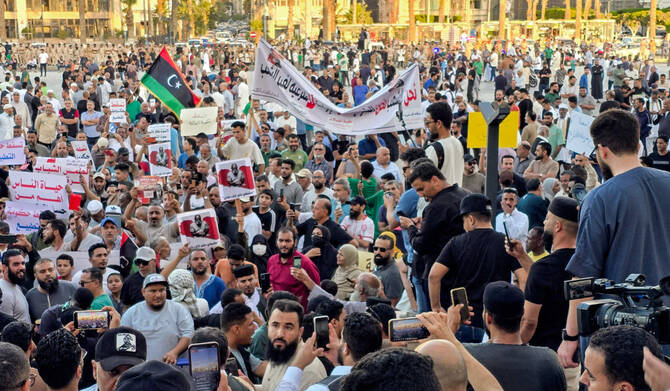PARIS: As political wrangling threatens to derail Libya’s proposed election, international powers see little choice but to start the vote as planned on Dec. 24 despite the risk of unravelling a year-long peace process.
Despite the lack of any agreement six weeks before the election on rules governing the vote or who can run, major states preparing to meet on Friday believe there is momentum behind the poll, diplomats say.
Western states are preparing to strengthen international backing for the election at a conference in Paris on Friday and want agreement on warning any potential spoilers that they could face sanctions.
Libya’s election was set through a U.N.-backed roadmap adopted last year that also established an interim unity government to take over from rival administrations in east and west that had been warring for years.
The peace process is seen as a chance to end the decade of instability and warfare triggered by the 2011 NATO-backed uprising that ousted Muammar Gaddafi and has since drawn in regional powers in a threat to wider Mediterranean stability.
However, with no clear agreement on the legal basis for the election, major factions may reject the vote, and analysts warn that even those who take part may seek to use any ambiguities or disputes to justify subsequent grabs for power.
“A postponement in itself is not less dangerous than maintaining the Dec. 24 date regardless of the risks. It all depends on how things are negotiated,” Jalel Harchaoui of the Global Initiative Against Transnational Crime said.
The likely candidacy of Khalifa Haftar, the commander of eastern-based forces who led a destructive assault on Tripoli in 2019-20 and who wields control in swathes of Libya, has angered many in the capital and western regions. They say no vote in areas he holds can be fair.
Some other Libyans, including powerful figures in the east, want to prevent the candidacy of Abdulhamid Dbeibah, who vowed he would not stand for election when he was appointed as interim prime minister in March. His critics accuse him of using state cash for populist policies he can use to win votes.
Other probable candidates include Saif al-Islam Gaddafi, son of the former dictator, and Aguila Saleh, speaker of a parliament that the election is intended to replace, and who issued a voting law that many Libyans see as self-serving.
Diplomats say they believe an election that includes all major figures is needed and that international monitoring of polls could help to prevent or to reveal fraud or the intimidation, suppression or manipulation of voters.
The most visible obstacle is the dispute over Saleh’s voting law, which was issued during a session that several parliament members later said lacked a proper vote or quorum.
Instead of setting both the presidential and parliamentary elections on Dec. 24 as stipulated in the U.N.’s roadmap, it said the parliamentary vote would take place at a later date along with a second round of the presidential vote.
Saleh’s law also said candidates already holding office must temporarily step down three months before the election. Both Saleh and Haftar have done so. Dbeibah has not.
Armed factions based in Tripoli have rejected the law. So has the High State Council, a body enshrined in a 2015 political agreement.
However, the state elections commission has already moved forward with the process of registering candidates and issuing voter cards. It has said a first round of the presidential election will take place on Dec. 24 with a second round, and a parliamentary election, within 52 days of that.






















